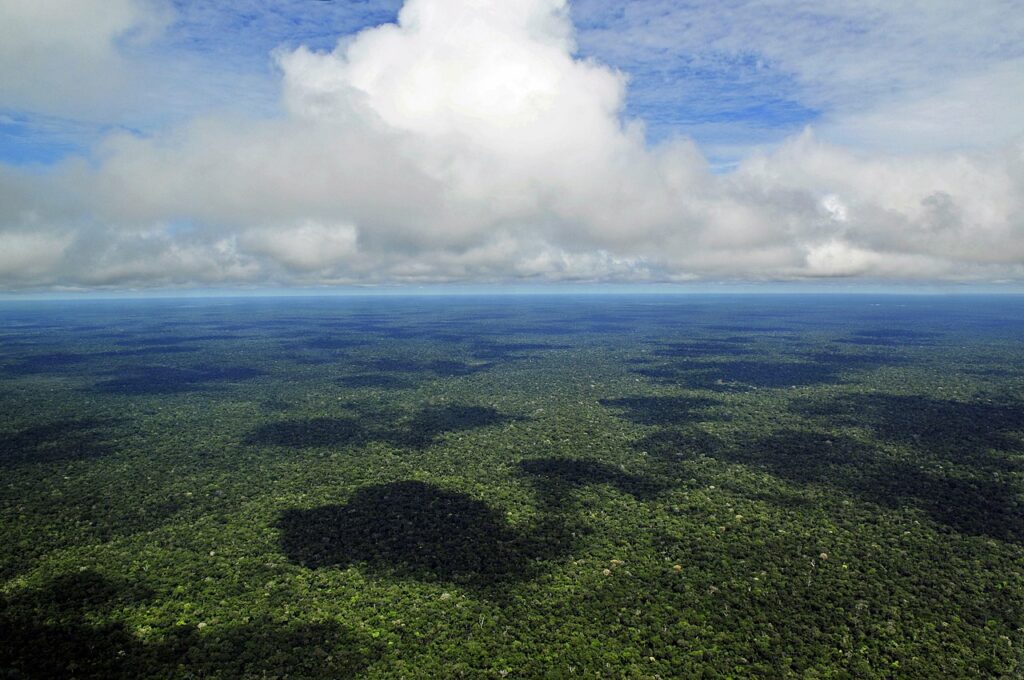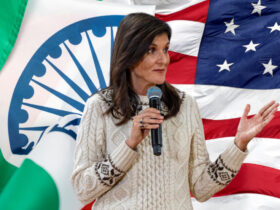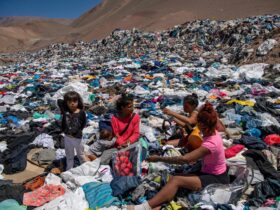The outcome of Brazil’s upcoming election will have major impacts on the Earth’s climate for years into the future. It’s a run-off between two candidates, current President Jair Bolsonaro and former president Luiz Inácio Lula da Silva. Bolsonaro belongs to the Liberal Party and is far-right in his politics. He’s been in office since 2019, and in that time has cut taxes and tariffs, focused on enhancing the military, loosened gun laws, and taken power away from federal agencies, such as Ibama, Brazil’s environmental protection agency. He also cut funding for education and weakened LGBTQ+ and reproductive rights. His opponent Lula da Silva is a member of the Workers Party and is left-leaning in politics. He served as president from 2003 to 2010 and this year’s presidential campaign is his sixth. His previous presidency was very successful, as he stabilized Brazil’s economy and launched social programs that brought many citizens out of poverty and starvation. Additionally, while Bolsonaro distanced Brazil from the rest of the world, Lula da Silva wants to return Brazil to the global stage. As it stands, Lula da Silva leads in the polls 47% to Bolsonaro’s 42%.
As Brazil currently finds itself in a tight economic situation, recovering from its worst-ever recession with limited economic growth, high inflation, and lots of debt, finances and economy will likely play a major factor in Sunday’s election. However, the most globally concerning issue is that of the Amazon rainforest and its fate in the hands of either candidate.
The Amazon Rainforest should ideally function as a major global carbon sink. A carbon sink is anything that absorbs more carbon from the atmosphere than it releases, and the rainforest used to be one of the most significant and important carbon sinks in the world. However, it has now converted to a carbon source, which releases more carbon into the atmosphere than it absorbs. This is due to both natural and manmade factors. In terms of the former, the eastern part of the Amazon rainforest over the last 40 years has seen a 25% reduction of rain and an increase of at least 2.7 degrees Fahrenheit during dry seasons. This causes more forest fires and even causes the trees to be able to contain less carbon than before. As these shifts are attributed to climate change, a nasty cycle is produced where such effects cause deforestation and carbon release, which contribute further to climate change. These factors, combined with human-started forest fires and clearance of trees have shifted this eastern part of the forest into a carbon source. The western part of the Amazon is largely carbon neutral, as it too suffers from fires and deforestation but not to the same degree as the eastern region. This is extremely worrisome for the Amazon and for the planet, as the conversion of carbon sinks into carbon sources might be a key shift in the progression of climate change, and not for the better.
A win for Bolsonaro in this election could make the fate of the Amazon go from bad to worse. Already during his presidency, Bolsonaro has cut environmental regulations, taken power away from those in charge of protecting the rainforest, put military officials who want to develop the forest at the heads of environmental institutions, and incentivized the invasion of native lands. Deforestation under him reached a 15-year high, with a loss of over two billion trees over the last four years. That is the equivalent of about 13,000 miles of forest lost, an area larger than the state of Maryland. From 2021 to 2022, fires in the Amazon rose by 147%, with over 41,000 detected, 31,500 during this year’s dry season alone. Even for a dry season this is an unusually high number, and is possibly due to ranchers using fire to clear their land under the cover of the dry season. If discovered, the punishment the farmers face is a fine, one they can get away with not paying. The reason for such destruction of the forest under Bolsonaro is that he actively encourages more farming, ranching, and mining in the Amazon. He has decreased government presence in the forest, a message to illegal farmers, ranchers, and miners that a blind eye will be turned to their clearance of the forest. He is also attempting to pass bills that would grant ownership of native lands to land invaders to mine and bills that would make it easier to obtain licenses to conduct large-scale farming or mining in the Amazon. He sees the Amazon as an opportunity for jobs and economic growth. As a result, many people in Amazonas state support him: many of them are below the poverty line and do need jobs; Bolsonaro makes this a priority. In September 2022, environmental criminals cleared 1,455 square kilometers of the forest in an attempt to destroy as much as possible before the potential change of power. Even before, in August, deforestation rose by 81%. People are acting in a last ditch effort to clear as much as they can just in case Bolsonaro isn’t re-elected. Ecologists say that if this level of destruction isn’t stopped soon, the damage could become irreparable and the rainforest will no longer be able to retain enough moisture to remain a rainforest; the Amazon would become a savannah.
Lula da Silva, on the other hand, vows to go in another direction. He says he will implement measures to protect the Amazon, appoint experts to environmental institutions and weed out illegal gold mining. He’s also proposed a National Climate Change Authority to ensure Brazil’s procedures are up to the Paris Agreement standards. On top of this, Lula da Silva has pledged to rebuild Ibama, the environmental protection agency Bolsonaro weakened and sidelined under his administration.
There is precedent for Lula da Silva’s claims: when he and his party were last in power from 2003 to 2016, deforestation fell by 72%. They accomplished this by increasing forest monitoring and addressing root problems of deforestation by implementing sustainable production and formal land ownership. However, Lula da Silva’s challenge this time around would be a little more difficult, with the precedent that Bolsonaro has set in the region. He would need to rid the Amazon of illegal miners, loggers, and ranchers, and better regulate food and gold markets.
This election is a key turning point for the Amazon rainforest because of the drastically different approaches the two candidates would take with the forest for the next four years. Under a Bolsonaro regime, destruction would likely continue and could even become more severe if he passes his desired bills making it easier to exploit the forest. The damage incurred could be irreversible. On the other hand, if Lula da Silva were elected, he could take the country’s approach to the Amazon and the environment in a new direction and hopefully implement change before it’s too late.







